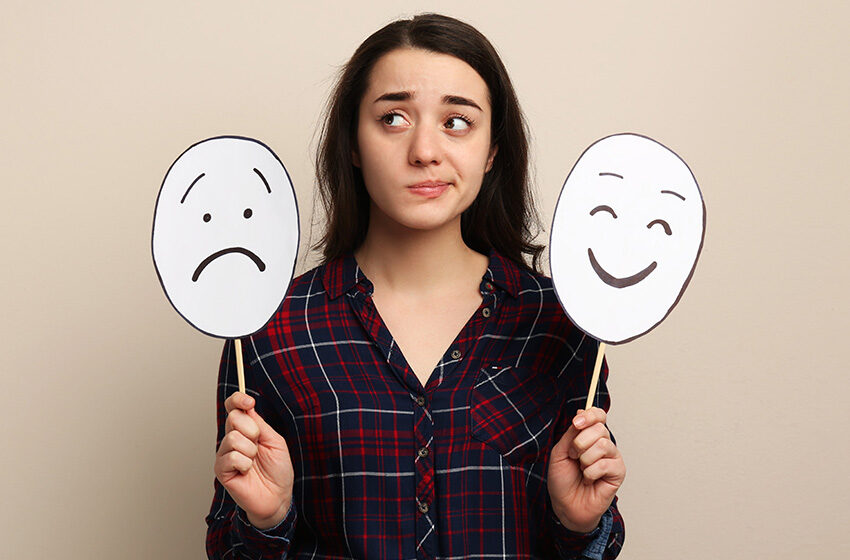Why is being unhappy easier than being happy?

When was the last time you were genuinely happy, without any underlying thoughts or concerns eating away at the back of your mind?
Some people may answer the question quickly, while others might take a little longer to come up with an appropriate reply. This difference pertains to a simple explanation; people have different personalities, ways of living, and varied experiences that directly affect their state of mind. Hence, the way a particular person reacts to a situation, another individual may or may not react the same way.
However, irrespective of dissimilarities regarding people’s crucial aspects of life, their responses and stimulus are the same for specific cases. For instance, most often than not, people are more prone to pessimism and unhappiness than being happy. Also, they are pushed to the edge of feeling negative such as frustration, anger, remorse, and worry.
If we take the example of the two-year-long pandemic, we can recall months of unending chaos, confusion and unrest that encapsulated people worldwide. Furthermore, a lack of adequate medical infrastructure and general unpreparedness put pressure on the healthcare system. Therefore, the resultant behaviour of people was a public frenzy wherein they mirrored the dominant emotion, which was unrest and misery.
Why is misery or unhappiness a dominant emotion?
Did you know that misery and unhappiness are both related?
Both emotions are contagious, meaning they spread, but misery spreads faster than happiness because of our intrinsic brain chemistry. Additionally, scientists and behaviour researchers have conducted studies over the years to prove this. The studies and research results indicate that negative emotions transmit more rapidly than positive ones.
Researchers pointed out the evolutionary past when awareness of other people’s emotions, such as pain, fear, and hate, was linked directly to survival. So, at earlier times, they always strived to determine others’ fear, pain, and disgust, which helped identify their survival in any given situation. Thankfully, we no longer have to worry about oncoming dangers; however, our natural instincts help us navigate troublesome problems, conflicts and social interactions.
Further studies have enlightened that people who have a higher degree of empathy or emotional quotient are more susceptible to others’ emotions. It indicates that people easily get influenced by others’ emotions, especially the negative ones.
For instance, William Doherty, a researcher, put forth the theory that introverts are more likely to be affected by others’ positive emotions. But on the other hand, extroverts are more likely to be affected by others’ negative emotional expressions.
Why are negative emotions more dominant?

As humans, we are more inclined to fear that something terrible might happen that indirectly affect our survival than anything positive. Also, when we sense a bad vibe, our mind responses get heightened because it very likely triggers primitive survival responses. The fear response starts in the brain region of the amygdala, which activates whenever we see a human face with an emotion.
Moreover, the amygdala’s reaction is more pronounced with fear and anger, which alerts the nervous system, and sets the body’s fear/ anxiety response into motion. Consequently, our body releases stress hormones like cortisol and adrenaline, causing the blood pressure and heart rate to increase.
The hormones are the body’s chemical messengers that alter our moods and emotions depending on the environment and circumstances of our daily lives. Researchers have characterised the phenomenon as emotional contagion (EC) as the emotions are contagious. According to the phenomenon, one person’s feelings transfer to another person, and it includes all kinds of emotions, including anger, sadness, fear, happiness, joy, and contentment.
You must have experienced the phenomenon many times, for instance, while interacting with a friend or a co-worker. There must have been times when your team was working on some project, most of them were feeling demoralised, and you started feeling the same way. Hence, this is quite common; despite our best efforts to remain optimistic in a particular situation, others’ emotions affect our own.
What is the solution?
The primary solution that comes to mind is pretty obvious and straightforward – you can surround yourself with positive people and refrain from indulging in negative news or situations. But that cannot happen always, and it is essential to dispel the misconception about happiness being joyful, content and cheerful all time.
It is improbable always to remain happy because, despite our best efforts, we feel unhappy, and it is important to let ourselves feel all kinds of emotions. Moreover, we cannot live a pretentious life and constantly avoid our problems, which would lead to repressing our emotions. And repressed emotions can lead to severe stress and cause several physical and mental issues.
It is easier to fall into a behavioural pattern, wherein you may linger on the harmful or toxic train of thoughts and spend time ruminating about random things. Nonetheless, the crucial thing is to balance the good with the bad; it is significant not to let the bad or good emotions consume you. But if you are having difficulty dealing with negative emotions, check out a few proven methods that might help you feel happy.
Express gratitude and Kindness
If being kind and expressing gratitude sounds preachy to you, you might want to reconsider your thoughts. Also, to achieve our goals, we take small steps, but after accomplishing any feat, we must express gratitude and be thankful to the people who helped us. Be it friends, family, mentors, or co-workers, anyone who contributed to your success is a part of your wonderful journey, so appreciate them.
Similarly, perform a simple act of Kindness such as helping someone who fell down or providing necessities to the needy. You never know what the other person is going through, and your one act of Kindness could make a difference in their life.

Acceptance
The world’s burden does not rest on your shoulder; hence, you need not be concerned about things beyond your control. Also, with the ever-changing scenario of the world, where countries are engaged in war and other such issues, you cannot do anything. So watching the news and stressing about despairing situations will make you more miserable.
Hence, be content and acknowledge the reality of your situation. Find joy and peace in your life as it is.
Avoid negativity
The media is overflowing with information, and on top of that, there are plenty of people around to express their opinions, therefore adding to the negativity.
You can choose what to read and the kind of people you want to surround yourself with. Moreover, a highly beneficial healthy habit is practising digital detox, spending time with family and friends, or going for a walk.
However, it is impossible to cut off the negativity or misery in our lives entirely. Still, you must try unless there are compelling circumstances and you need to resolve the issues.







